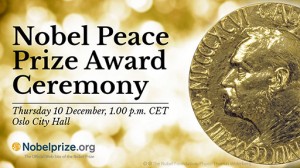Archive for December, 2015
Responding to Megaterrorism after Paris
By Richard Falk
Prefatory Note
The article below is based on an opinion piece published by Middle East Eye on December 1, 2015 under the title “A Different Response to ISIS after Paris.” My modified text places its focus on the originality of megaterrorism and its distinctive challenges, suggesting that the choice of response needs to be extended beyond the iron cage of militarism and vengeance. Also, it is essential for analysts and leaders to envision the response to the response as well as being preoccupied with how best to hit back. Increasingly, American politicians treat the challenge as if playing poker whereas the realities of the situation call for a chess players’ natural disposition to think ahead as many moves as possible. Finally, given the religious and civilizational dimensions of current versions of megaterrorism, it is vital to guard against various manifestations of Islamophobia.
What separates megaterrorism from other more customary forms of terrorism is the theme of this post. It is not possible to give a precise definition of megaterrorism by pointing to a threshold of casualties or the magnitude of response. Each megaterrorist event is decisively shaped by its distinctive sociopolitical and psychological context.
The focus here is to take account of this radical new category of threat posed in a variety of settings, critique the ‘war’ reflex and the war/crime binary, briefly consider alternate paths of response, and recommend risk and cost assessments that take into account adversary responses to the prescribed response. The 21st century experience with responding to megaterrorist events does not create confidence in either most conceptualizations of the challenges being posed or the responsive strategies chosen to be implemented.
The horrific Paris attacks of November 13th challenge the West more deeply in some ways than did the 9/11 attacks 14 years ago. Read the rest of this entry »
Om Samförståndsavtal med Nato om värdlandsstöd
Av Ola Friholt
För Fredsrörelsen på Orust
Ordförande och TFF Associate
Till Försvarsdepartementet
103 33 Stockholm
Re: Yttrande om promemorian om Samförståndsavtal med Nato om värdlandsstöd.
DS 2015:39 PM om värdlandsavtal
Fredsrörelsens organisationer har sent omsider fått ta del av denna promemoria. I hast vill nu Fredsrörelsen på Orust avge detta yttrande.
Det förtjänar att påpekas att den samlade fredsrörelsen i Sverige har genom en mer än hundraårig tradition av intresserad efterforskning och fördjupning i frågor om konflikter och konfliktlösning uppnått en fördjupad kunskap, oftast förmedlad av kända fredsforskare som Johan Galtung, Håkan Wiberg, Jan Öberg och av dem som vid svenska universitet inbjudits till talrika seminarier, alltså internationella profiler som nämnde Galtung, Noam Chomsky, Richard Falk, och böcker av Daisaku Ikeda, Howard Zinn och andra.
En överväldigande bevisning finns om att militära medel inte förmår lösa konflikter. Konfliktlösning och bestående fred måste eftersträvas och förverkligas med fredliga medel, avspänning, samarbete m m för att åstadkomma en gemensam säkerhet för alla konfliktande parter. Straff- och vedergällningstänkande är alltid kontraproduktivt. Rustning och allianser skapar hot och spänningar.
I detta ljus bör vi analysera det pågående arbetet med att vinna folkets stöd för ett värdlandsavtal med Nato, världens utan jämförelse starkaste militärallians med cirka 60 % av världens samlade militärutgifter.
Fredsrörelsen på Orust har följande synpunkter på detta PM om värdlandsavtal:
Avsnitt 3, Ärendet
Under de senaste tjugo åren har Sveriges regeringar stegvis och utan folklig debatt och information övergivit etablerad svensk säkerhets- och fredspolitik, bort från målet att främja kärnvapennedrustning, Norden kärnvapenfri zon (i Alva Myrdals efterföljd), arbete för nedrustning och omställning till civil produktion (i Inga Thorssons efterföljd), arbete för fredlig konfliktlösning (i Maj-Britt Theorins efterföljd) och arbetet för gemensam säkerhet (i Olof Palmes efterföljd).
Förkortningar som OSSE, ESK m fl har förlorat sin innebörd. Man hänvisar aldrig till Helsingforsöverenskommelsen eller FN-stadgan, utom när det gäller Rysslands göranden.
Partiskhet är lösenordet för Sveriges utrikes- och säkerhetspolitik.
PMets formulering ”Sverige är ett aktivt partnerland och vårt samarbete med Nato inom PFF har gradvis utvecklats och fördjupats” ter sig i detta ljus som ett öppenhjärtigt konstaterande att Sveriges fredssträvande politik är bytt mot rustad militär maktpolitik. Read the rest of this entry »
Dubbelspelet kring Ukraina
Av Ola Friholt
TFF Associate
Med den uttalade avsikten att underminera Vladimir Putins ställning i Ryssland har Natostaterna och övriga EUstater systematiskt förtigit Kievregimens vägran att följa de avtal den själv skrivit under.
Istället har Ryssland anklagats för dubbelspel och erövrarambitioner. Utvecklingen ser ut så här*:
1. Ukraina förhandlar med EU om ekonomiskt samarbete, vilket skulle innebära att bryta samarbetet med Ryssland. När president Janukovitj av sina ekonomer fick veta vad detta skulle kosta landet, avstod han från att underteckna det framförhandlade EU-avtalet.
2. Detta utlöste Maidanprotesterna, från grupper i västra Ukraina, vilka länge velat ansluta landet västerut. Dessutom deltog Janukovitjanhängare. Skottlossning utbröt från hus omkring torget, med okända skyttar. Detta tolkades som Janukovitjs ansvar.
3. Janukovic och Maidanledarna framförhandlade 21 feb 2014, tillsammans med Frankrikes, Tysklands och Polens utrikesministrar och en representant för Ryssland ett avtal, som gick ut på följande: a. Ömsesidig demobilisering av väpnade grupper.
b. Omedelbart arbete med författningsändringar, först för att begränsa presidentens befogenheter (som tidigare hänt efter den orangea revolutionen 2004).
c. Förhandling av ny författning att antas senast i december 2014.
d. Presidentval ska hållas i december genast efter att författningen antagits.
e. En nationell enhetsregering från båda sidor ska verka fram till valet i december 2014.
4. Underskrifterna på detta avtal ratificerades av Majdanrådet men avvisades av de hårdföra högeraktivisterna, som krävde omedelbar (lagstridig) avsättning av presidenten och förbud mot de två politiska partierna i östra Ukraina, d v s eliminering av den östliga politiska eliten.
5. Den 22 februari grep högerextremisterna makten och avsatte Janukovic som flydde till Ryssland. Read the rest of this entry »
TFF PressInfo # 351: The Nobel Foundation taken to court on the Peace Prize
Lund, December 10, 2015
On the day of the Nobel Peace Prize Award Ceremony at Oslo City Hall
To whom it may concern, including the media
We know – and Alfred Nobel knew – how devastating war and arms races are, and how little security we get for all the money we spend on military forces.
The campaign to reclaim the Nobel Peace Prize is first and foremost a campaign to revive the idea that global peace requires global cooperation on disarmament and replacing the law of force with the force of law. Every day more and more of us see, from the Middle East warfare, from the refugee crisis, and many other chilling reminders, the mandatory urgency of a change in world politics.
Alfred Nobel decided to give one fifth of his fortune for a prize to promote disarmament and resolution of all conflicts through negotiations and legal means, never through violence.
Can such a prize, with a so clearly stated goal, be turned to serve the opposite idea and be given again and again to recipients who promote arms races and believe in militarism and war?
This question will soon be answered, after Mairead Maguire, Jan Oberg, Davis Swanson, and Lay Down Your Arms took the case to the Stockholm District Court on Friday 4th of December 2015. Here is the full text of the summons.
and all other relevant information is available at the Nobel Peace Prize Watch.
Test case: the award to the European Union in 2012
The court case will test one of the most obvious violations of the Nobel idea Read the rest of this entry »
The Nobel Foundation Summons, Dec 4, 2015
Mairead Maguire, Jan Oberg, Davis Swanson, and Lay Down Your Arms took the case against the Nobel Foundation and thereby indirectly the Nobel Committee in Oslo to the Stockholm District Court on Friday 4th of December 2015.
Full text of the summons
Stockholm, December 4, 2015
Stockholm City Court
Box 8307
104 20 Stockholm
Our ref
8112/L
PETITION FOR A SUMMONS
[BRIEF TO OPEN CASE]
Plaintiffs
1. Mairead Maguire
2. Jan Öberg
3. David Swanson
4. Lay Down Your Arms/Nobel Peace Prize Watch
Counsel
Advokat Kenneth Lewis
Lewis & Partners Advokatbyrå AB
Box 2104
103 13 STOCKHOLM
Respondents
1. Marcus Storch
Grevgatan 65, lgh 1401
11459 STOCKHOLM
2. Göran K Hansson
Sankt Eriksgatan 14, lgh 1304,
112 39 STOCKHOLM
3. Lars Heikensten
Odengatan 75
11322 STOCKHOLM
4. Peter Englund
Dragarbrunnsgatan 63 C
753 20 Uppsala
5. Tomas Nicolin
Karlavägen 11, lgh 1603
114 24 Stockholm
6. Kaci Kullman Five
Lille Toppenhaug 4
1353 Baerums Verk
Norge
7. Staffan Normark
Långängsvägen 27
182 75 Stocksund
Case
Board members´ liability to compensate the Nobel Foundation according to the Foundations Act (1994:1220)
Forum
Ch. 10 Art. 14 Rättegångsbalken (Civil Procedure Act)
As the retained counsel of Mairead Maguire, Jan Öberg, David Swanson and Lay Down Your Arms (Below plaintiffs) I hereby apply for summons of Marcus Storch, Göran K Hansson, Lars Heikensten, Peter Englund, Tomas Nicolin, Kaci Kullman Five, and Staffan Normark and will present these
Peace journalism – is it working?
By Johan Galtung
Short answer: No. The Paris event triggered war journalism; no peace journalism was observed. To doubt that anti-IS violence will work is not peace journalism, only war journalism with question marks.
Peace journalism was conceived in the 1960s as a reaction to foreign news negativism, and focus on actors and elite people/countries. Not as advocacy of peace, but as journalism about peace; like war journalism is not advocacy of war, but indispensable journalism about war, reporting what happens, and who is winning. It can be done well or not, and often becomes propaganda for one side, in national more than local and global media (with Anglo-American accent, however).
Thus, peace journalism was never a substitute for war journalism. The idea was to have both, complementing each other. Read the rest of this entry »
A ceasefire in the War On Drugs?
By Jonathan Power
Not that long ago in Britain Sherlock Holmes could quite legally sit by the fire with his pipe and sniff cocaine. If friends wanted to join him they could, without fear of a police raid, smoke marijuana. Opium was used for those in unbearable pain and could be bought without a doctor’s prescription. (Alas, most people in very poor countries then and today have never been able to afford any pain relief. Too many die in agony.)
Historically, it is the British who have the worst record on drugs. When the British controlled India they became the largest drug trafficker the world has ever seen, transporting opium from India to China, forcing Chinese ports open so they could win addicts among the mass market of the poor.
These days, when it comes to alcohol and tobacco, in most societies the degree of control is subject to fierce debate Read the rest of this entry »




